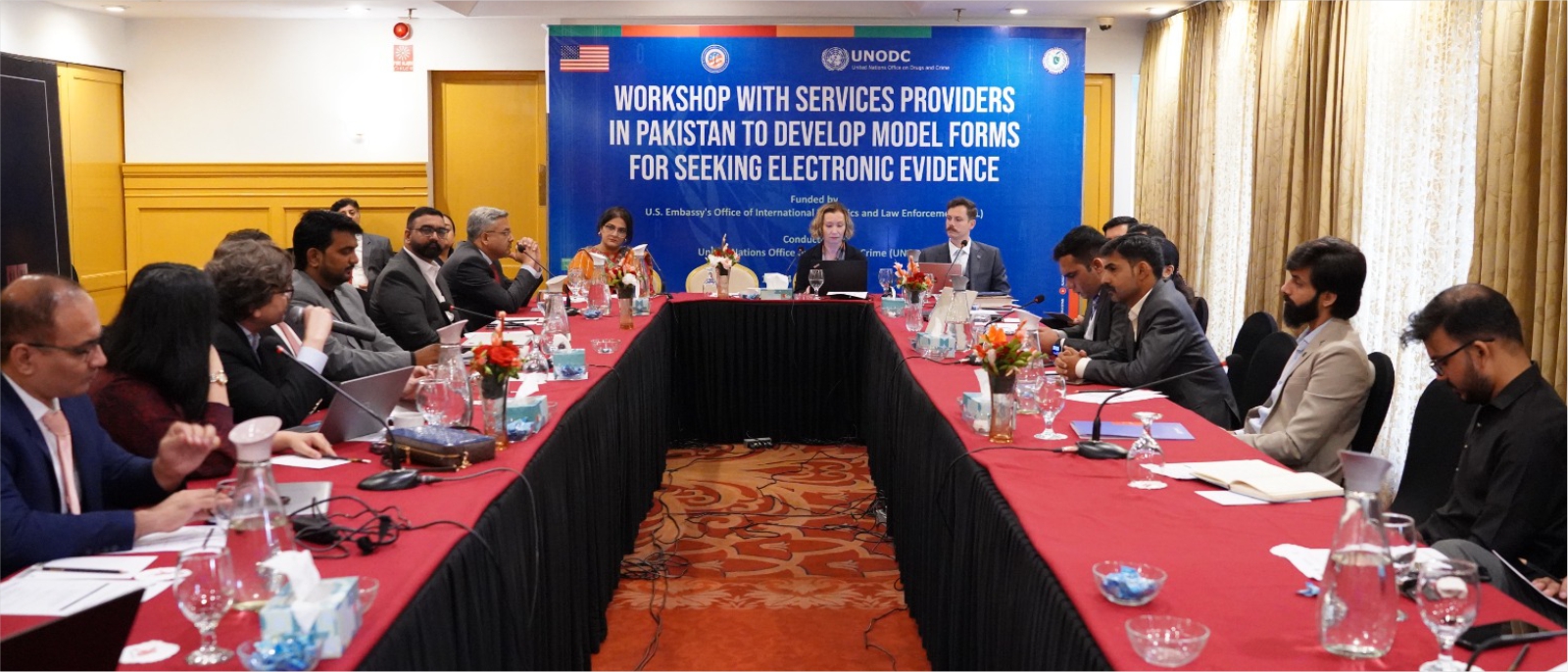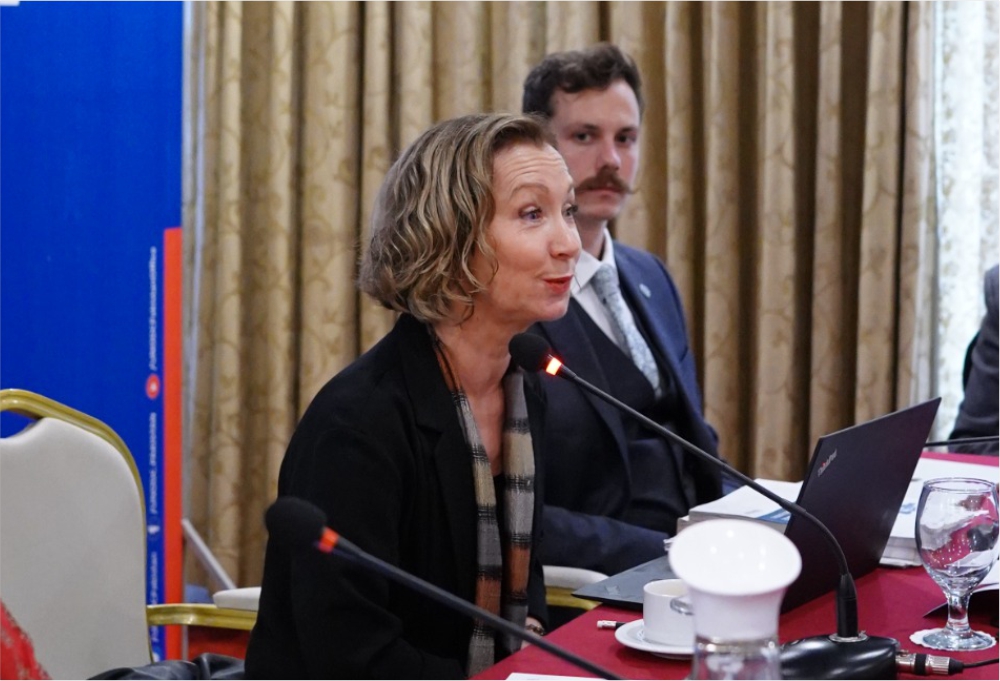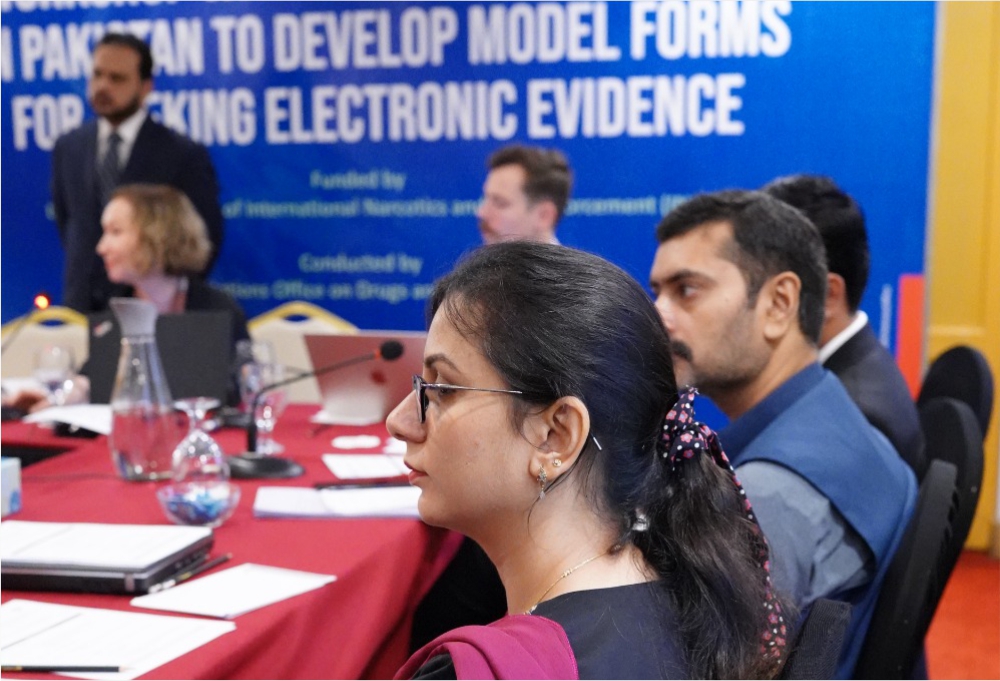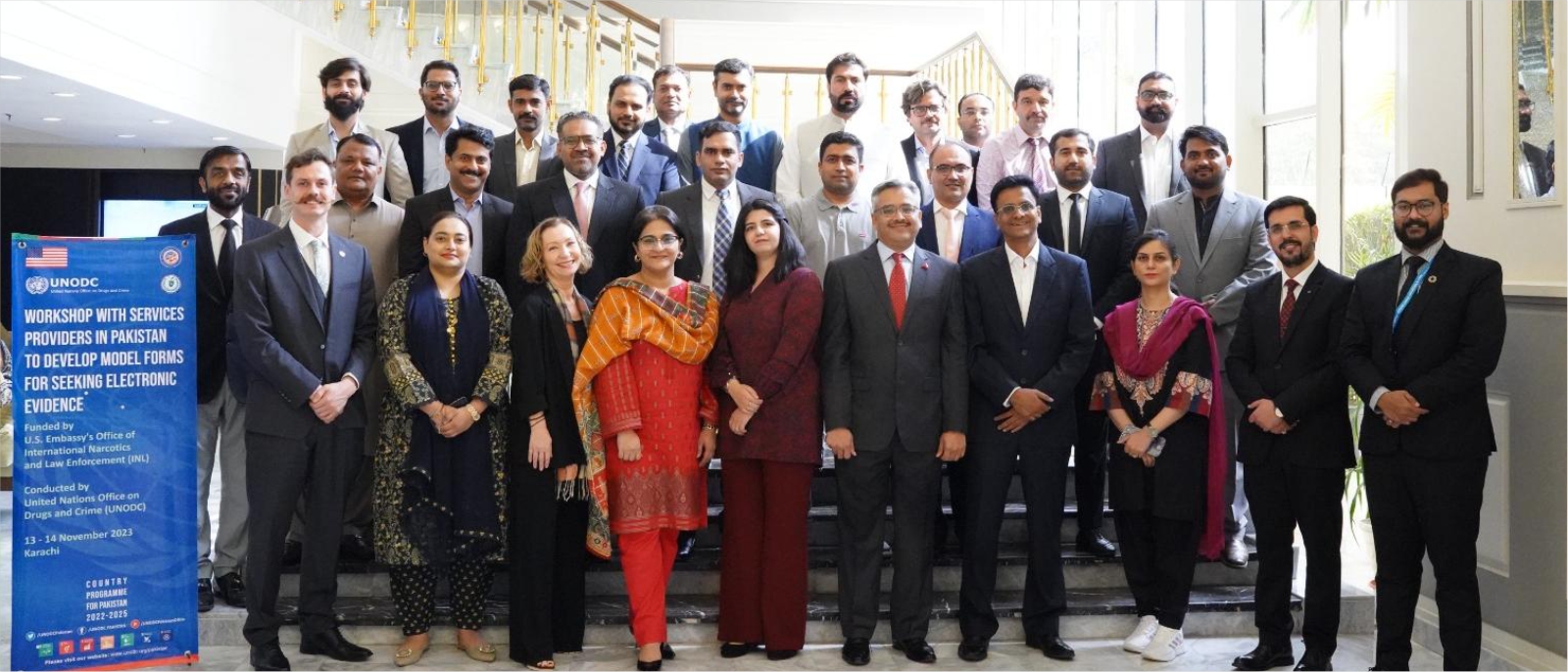
14 November 2023, Karachi - The United Nations Office on Drugs and Crime (UNODC), the National Counter Terrorism Authority (NACTA), and the Ministry of Interior (MOI) organized second two-day workshop on requesting electronic evidence in terrorism-related cases, funded by the U.S. Embassy's Office of International Narcotics and Law Enforcement (INL).
A diverse group of 25 professionals including 2 females delved into the complexities and importance of electronic evidence in legal proceedings. Participants from across the govt institutions assembled to share insights, challenges, and best practices.
The main goal of the workshop is to finalize the forms and review of the August workshop's outcomes. The Expert highlighted the linkages between past initiatives with current efforts, emphasizing continuity and growth in this vital specialized area. The discussions throughout the workshop focused on the obstacles and differing perspectives related to the acquisition of electronic evidence, highlighting the need for a unified approach by the participants.
Attendees received a thorough briefing on the relevant domestic laws and by-laws, enhancing their understanding of legal rights and obligations in data preservation and acquisition during non-emergency and emergency situations.


During the course of the workshop, expert-led demonstrations of draft model forms showcased the tangible progress made so far. The Law enforcement agencies provided their feedback on the drafts which was invaluable, ensuring the forms met the practical needs of real-world application.
Group exercises were pivotal, as attendees finalized and presented model forms designed for various data acquisition scenarios. The collaborative nature of these sessions underscored the workshop's commitment to practical outcomes and operational readiness.
As the workshop concluded, participants expressed their gratitude for the efforts of UNODC in organizing the event. They had recognized the importance of model forms for Requesting Electronic Evidence Across Borders as a significant step in Pakistan's fight against terrorism.
The event not only fortified the professional network among service providers and law enforcement but also reinforced Pakistan's commitment to enhancing legal procedures in the digital realm.
The workshop was funded by the U.S. Embassy's Office of International Narcotics and Law Enforcement (INL) as part of Pakistan's Terrorism Prevention Programme (PTP2) concerning Sindh and Balochistan.
